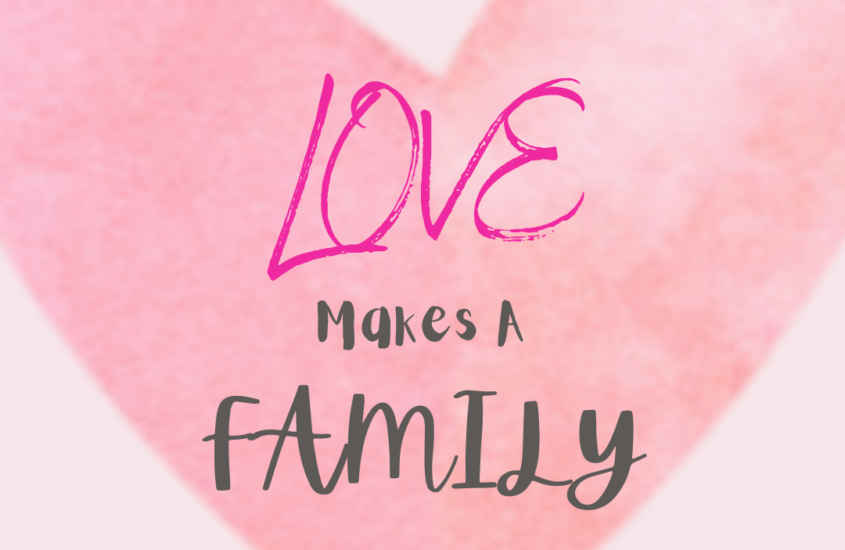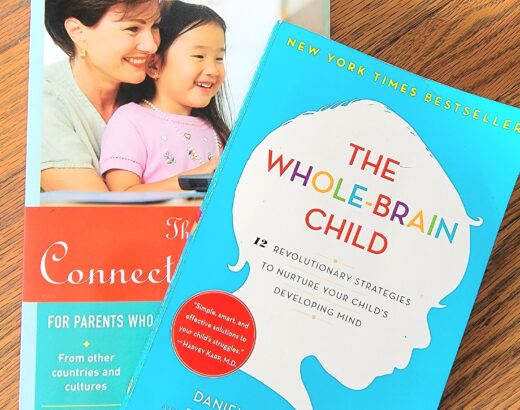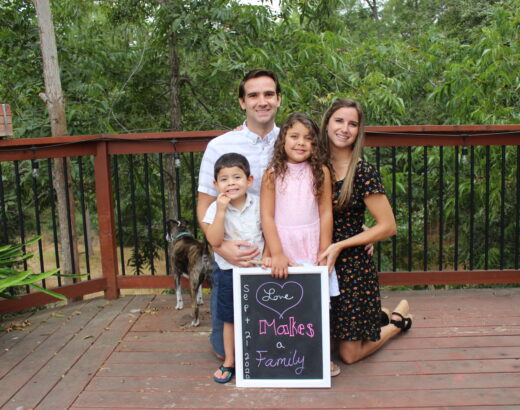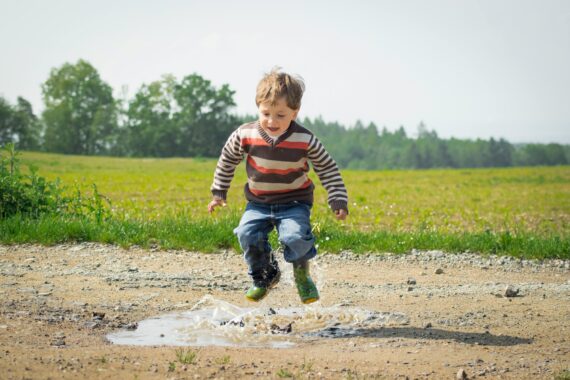Five Things People In Foster Care Rarely Talk About

There are many truths about the foster care system that I wish I had known before taking the plunge. Because I struggled so much initially, I am more upfront about the struggles of parenting than most people tend to be. When I became a parent, I felt so alone. I looked at these moms who just seemed to have it all together. I was doing this whole parenting journey in a different way, and I felt so out of place. While I was blessed with an amazing support system outside of foster care, there are just some things they will never understand, and that is okay. But that makes it all the more important you find your foster people too. Here are 5 things I wish I had known before becoming a foster parent. Knowing this wouldn’t have changed my decision to foster, but I sure wish I could have been a little more prepared before taking the plunge.
Bio parents usually aren’t bad people, they came from hard places too.
It’s easy to think bio parents are just awful people. After all, they lost their children for a reason, right? There is a simple truth behind most bio parents’ stories. Many were raised in a subculture that perpetuates child abuse and endangerment. They were often victims of sexual or physical abuse, neglect, and more. Drugs often tend to play a big role and are near impossible to avoid in these subcultures.
“The best way we can support the children in our care is to show support to their bio parents.”
Sincerely Amanda Blogs
Once you accept this reality, it becomes easier to see them for who they are. Broken people who couldn’t overcome their upbringing and are perpetuating it on to their children. Most of these parents have love for their children, they just can parent safely. As with all things, there will always be those “parents” who are just terrible people who are incapable of caring for anyone but themselves. For me, they are anomalies. I would say a good majority are just people who are lost in their addictions or products of a difficult upbringing.
The best way we can support the children in our care is to show support to their bio parents, if it’s prudent to do so. In both of our long- term placements, I quickly found myself so torn between loving our children so fully, never wanting to let them go, and rooting for the bio mother to get clean and be able to parent again. It is a very strange emotional mix and one that is not exactly easy to understand. Therapy is a great friend when you are at this point.
If bio parents are not able to make the necessary changes, then another way we can support our children is to be honest but kind when telling their story. Saying things like, “your mom was a lousy drug addict who only loved pills” is not helpful and the messaging is damaging to our children. Instead, validate the reality of their story and affirm their worth. Example: “Your mom was lost in her addiction, and she made unsafe choices. She loved you very much. My job is to protect you and keep you safe. I will always do that.” Tell the truth in an age appropriate, factual, nonjudgmental way. How we phrase their story will impact them for life. The story we share are the foundations of their future. Build them up ever so carefully.
Parenting children from hard places is not the same thing as traditional parenting.
I experienced childhood trauma so I thought I knew what it would take to parent a child of trauma. Boy, was I wrong. Just because I understood the big emotions didn’t mean I was prepared to help them process it. This reality made me feel like a failure at first. I had been an aunt and a nanny for several years. I was confident and comfortable caring for children. To not be awesome at this, was difficult for me to accept.
I had to recognize this was an entirely different reality for a few main reasons. First, I was now the full-time caregiver. Those long weekends with nieces had an end in sight. Those long days with a toddler ended when mom or dad came home from work. Now I was the 24/7, 365 caregiver. Second, it turns out when a child is acting out their trauma, it can actually trigger your own trauma up and you begin to dysregulate too.
I am a very vocal proponent for everyone having someone they can turn to that is not emotionally involved in the situation. Therapists are perfect for this because they are legally bound to keep your conversations private, with few exceptions. We also found my daughter the perfect therapist! He was truly an angel and helped take our family from violent meltdowns all day every day, to finally being able to have a normal existence again! I am forever grateful. He filled the gaps that I couldn’t.
An important thing I started doing is regular self-care. Oftentimes, people treat self-care as taking regular showers, or going to the bathroom alone. I am here to tell you; those are necessities and should be something you always make a point to try and do. The self-care I am talking about is the occasional lunch with a friend, my own therapy, acupuncture, massage, date nights, etc. These are all things I implemented to ensure I took time to recharge.
I love to read, which is a useful thing as a parent because there are a lot of smart people out there who graciously share their knowledge with us! Traditional parenting methods often don’t work well for children from hard places. In our training, we learned TBRI (Trust Based Relational Intervention) which is based on connection. The reason this matters so much is because our kids typically have not had a stable connection yet in their life. It is a core need of every human and is the component behind stable relationships and safe life choices. When the connection is there, the ideal behaviors seem to more easily follow suit.

Here are a few books to get you started!
You might not click with your placement right away
My expectations of bonding with children from hard places weren’t based in reality. Being the youngest of 4, my siblings all had children before I started my family. I have witnessed birth and held brand new little babies. Each time, I felt this immense love and desire to protect. There was an instant connection and this was my expectation of any child coming into our home and it set me up for some very hard months. I wasn’t taking on brand new little babies with zero trauma, I was taking on children, with major trauma and attachment struggles.
I knew there would be tantrums and big emotions. I was not prepared for the violent nature of these outbursts and the daily physical and verbal assault I was going to endure. You see, when a child has been abandoned repeatedly, has experienced physical and emotional violence, and has never been shown how to safely regulate, they will take it out on you. After a few months, I was feeling depressed. My inability to feel “love” as I thought it should be was breaking my heart and I felt like I was failing.
This is where therapy became crucial. My therapist asked me to describe what love felt and looked like. I gave her the same description I shared above of that newborn, instant feeling of love. Then, she asked me what I did each day. In spite of the depression, I was fighting through, I woke up, fed them, played with them, cuddled them, and did all of the things a mom would do. She taught me I was building love and a bond slowly through my daily actions. This conversation and my daily actions didn’t immediately take me out of depression, but it did change my mindset that would eventually get me there.
I needed to put in the work. I needed to earn their trust. As I continued to do the actions of love, eventually the feeling of love would come. It didn’t come that week, or even that month. It took several months, but one morning I woke up and my heart just felt such a way it never had before. I finally felt that love in my soul I had been craving to feel. It has strengthened each and every day since and now there is nothing in the world that can take that from me. I chose love and now it is a part of my soul.
The behaviors didn’t disappear all of the sudden. In fact, years later, they are still a part of our life from time to time. However, my love is not based on good or bad behaviors. It has grown into an unconditional love, and it honestly feels as if I had birthed them myself. Connection and love may not come right away, but with daily effort, it can come. And when it does, there is nothing better.

You will want to quit, often. Sometimes you will quit, and that is okay.
On some of my hardest days, I questioned what on earth I had done. I would pick up the phone to call the social worker to say I just couldn’t take it anymore. I missed my life, my freedom, the peace and quiet. I would hit a breaking point, and then I would sleep on it. Things always seemed better after a good sleep. I would find renewed strength and perspective. What these moments taught me is how important it is to meet my needs. I could not be the mom I wanted to be if I was running on empty. Taking breaks was important, self-care was a necessity, and socialization with adults was necessary.
Nobody tells you just how hard it’s going to be. Or that you are going to think and feel things that seem horrible. Things most nonparents would judge you for. But the reality is, most parents think or feel those things at some point too. Don’t try and pretend like everything is perfect. It is so isolating being around someone who seems to have it all together. It’s usually a big fat lie anyways because nobody has it together all of the time. Perfection is the great illusion of our social media society. Be real, be honest, and be supportive of others.
I am so glad I had friends who kept it real with me. On the days I felt like a failure or a terrible mom, they shared their difficult moments with me. It helped me feel like I could do this, and I was a good mom in spite of my shortfalls. If I had allowed myself to buy into the “perfect mom” bull, if I hadn’t pushed through the hard moments and quit, my life would be so empty now.
Sadly, there are times where you have given it your all and you truly cannot meet the child’s needs, or you cannot keep others in your home safe. Sometimes you have to make that call and say you cannot care for this child anymore. There are genuine and valid reasons for doing that, no matter how difficult the call actually is to make. If you find yourself in that situation, I want to you do 3 things.
- Take some time for yourself to just feel all of the feels.
- Involve your therapist or trusted friend. Don’t hold it in. Find your safe space to share and let it out.
- Forgive yourself. You did not fail. You gave it your best and sometimes a child isn’t meant to stay. You gave that child the opportunity to find someone who can meet their needs in ways you could not.
It’s true, some Social Workers don’t care, but don’t let that stop you from recognizing the ones who do!
I want you to know I say this after having one of the worst social workers on planet earth. A true sociopath who didn’t care about children, lied in reports and court, and was described by other professionals as truly evil. Her supervisor was desperate to keep employees because they are in such a shortage that all complaints from various parties went unheard. To my knowledge, she is still inflicting trauma on children, and it is terrifying. However, prior to this awful worker, I had only had wonderful workers who truly gave a damn. I try to remember that our most recent one was a tragic result of a very broken system.
Social workers are some of the hardest working and most underpaid people given the incredible weight they carry. They see the worst of humanity and have to make gut-wrenching decisions regularly. It is not a job you get into for the money (though some do for the power). With every other profession, employees can experience burn-out, or due to the intense nature of the things they witness, they grow a very thick skin. Things that might bother us may not seemingly bother them.
The reality is, they have laws to abide by and things that must be checked off the list before reunification or termination can happen. Yes, some social workers are jaded, some are downright terrible. But try to be gracious with your social workers. They have taken on a heavy load, and we only see a small snapshot of what they deal with.
However, there are certainly cases where the social workers fail the children. That is where knowing what you can do as a foster parent matters. We don’t have many rights, or much say, but there are steps we can take to ensure our children are safe.
- If you are dealing with an unresponsive social worker, cc their supervisor. If that doesn’t work, email the entire team. If you are repeatedly dealing with problems with your social worker, call the ombudsman. The complaints get filed through to the program manager which Isn’t always helpful, but hopefully your program manager will be better than the one we were sent to.
- Every child should have an attorney assigned to them. If there are things being overlooked or legitimate concerns you have are not being addressed, bring it up to them. Unfortunately our last placements attorney was in the process of getting hired by DCFS so she was zero help to the children. That was certainly a conflict of interest and is not usually the case. However, you should know that foster care is a very incestuous organization and there really is not as much autonomy or oversight as there should be.
- After a reasonable amount of time, usually 6 months in placement, you can file for de facto parent status. This means you can participate in hearings, and it gives your voice more weight. You might consider consulting an attorney to help you prepare the necessary documents. For our most recent placement, we first connected with AdvoKids and ultimately engaged an attorney in our area (not related to AdvoKids). While it didn’t turn out for the girls, we felt good knowing we did everything in our power to protect them.
If this just completely scared you off, that is okay. There are so many ways to help foster children without being a foster parent. If you are still feeling the pull, great! I hope what you read better prepares you and helps you feel ready for the day you open your doors and welcome these sweet children into your home. It is a life altering day. It can be scary for them and for you, but if this is on your heart, you will do amazing things. Find your tribe and ask lots of questions. I’m rooting for you!
Sincerely,
Amanda
For more content and future post updates, be sure to follow on Instagram.













